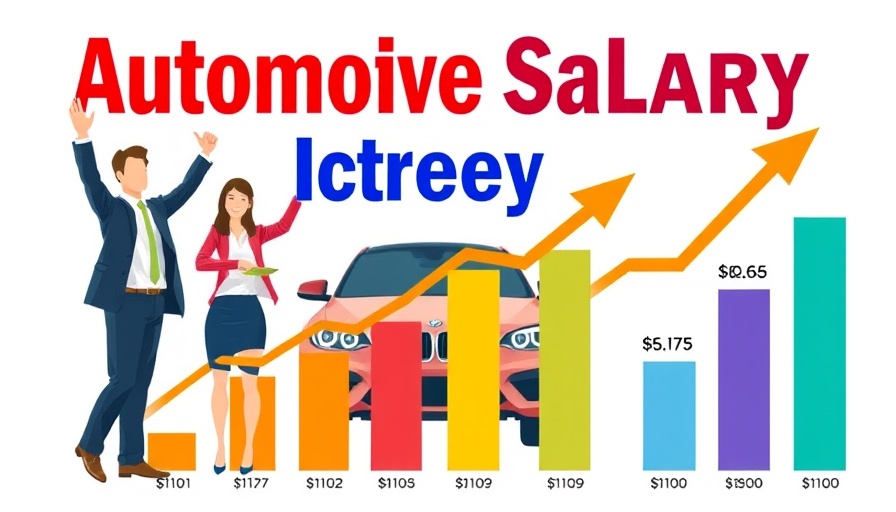
Understanding the Automotive Salary Surge: A Closer Look
The automotive sector in India is gearing up for an impressive year, with salary hikes averaging 10.1% for FY25, according to Deloitte's latest findings. This growth positions the automotive industry ahead of the broader corporate landscape, which expects average salary increases of around 8.8%. The delineation in salary growth underscores a significant trend: as industries evolve, so too does the demand for top-tier talent, particularly in emerging fields.
The Driving Forces Behind Salary Increases in Automotive
The anticipated salary increments reflect a broader recruitment landscape focused on high-demand fields. As car manufacturers pivot towards electric vehicles (EVs), research and development (R&D), and the integration of artificial intelligence (AI), the need for skilled professionals in these areas is at an all-time high. HR leaders from major firms like Hyundai and Sonalika emphasize the increasing competition to attract the best talent, which ultimately propels salary growth.
Current Market Dynamics: Where HR Professionals Fit In
For HR professionals navigating this landscape, understanding compensation strategies becomes crucial. Companies are not only increasing salaries but also refining their employee benefits and compensation packages. The double-digit increases seen in this sector offer insights into how firms can enhance employee satisfaction and retention through competitive compensation and efficient payroll management.
Strategic Compensation: More Than Just Salary Increases
While salary hikes are commendable, employee engagement and retention strategies must accompany these adjustments to truly foster workplace satisfaction. Employers are diversifying their compensation strategies to include enhanced health benefits, flexible work arrangements, and opportunities for professional development. This multifaceted approach caters to the evolving expectations of the modern workforce, ensuring that skilled employees remain invested in their roles.
The Role of HR Technology in Compensation Optimization
To effectively manage these changes, HR departments are turning to technology. Innovative HR software solutions enable payroll compliance, benefits administration, and workforce analytics—elements crucial for aligning compensation practices with organizational goals. Automation in payroll processing not only reduces errors but also provides HR professionals with accurate insights into compensation benchmarking and compensation analysis.
Looking Ahead: Future Salary Projections in the Automotive Sector
As we move forward, the projected salary increases of around 9.5-10% suggest a continuous upward trend within the automotive industry. This expectation is supported by longstanding patterns observed in recent years. However, industry analysts caution that consistent increments will depend on overall economic conditions, talent availability, and ongoing shifts in consumer demand.
What This Means for HR Practices
As salary expectations rise, HR managers must not only focus on compensation but also advocate for strategic workforce planning. With workforce options becoming increasingly competitive, prioritizing employee satisfaction through effective HR policies and practices will be essential. Implementing comprehensive employee retention strategies, engaging employees in dialog about benefits, and ensuring payroll compliance will undoubtedly shape the effectiveness of these initiatives.
Conclusion: Shaping the Future of Talent Management
The automotive industry's bold salary hikes highlight a pivotal moment for HR professionals. By leveraging enhanced compensation strategies, technology, and a focus on employee engagement, organizations can build a resilient workforce poised to tackle future challenges. As these developments unfold, staying attuned to industry trends will be vital in shaping positive outcomes for employees and employers alike.
To delve deeper and stay informed about the evolving dynamics within the automotive sector, consider subscribing to our insights newsletter. Together, let's build a future where workforce management aligns closely with employee satisfaction and compensation excellence.
 Add Row
Add Row  Add
Add 




 Add Row
Add Row  Add
Add 

Write A Comment